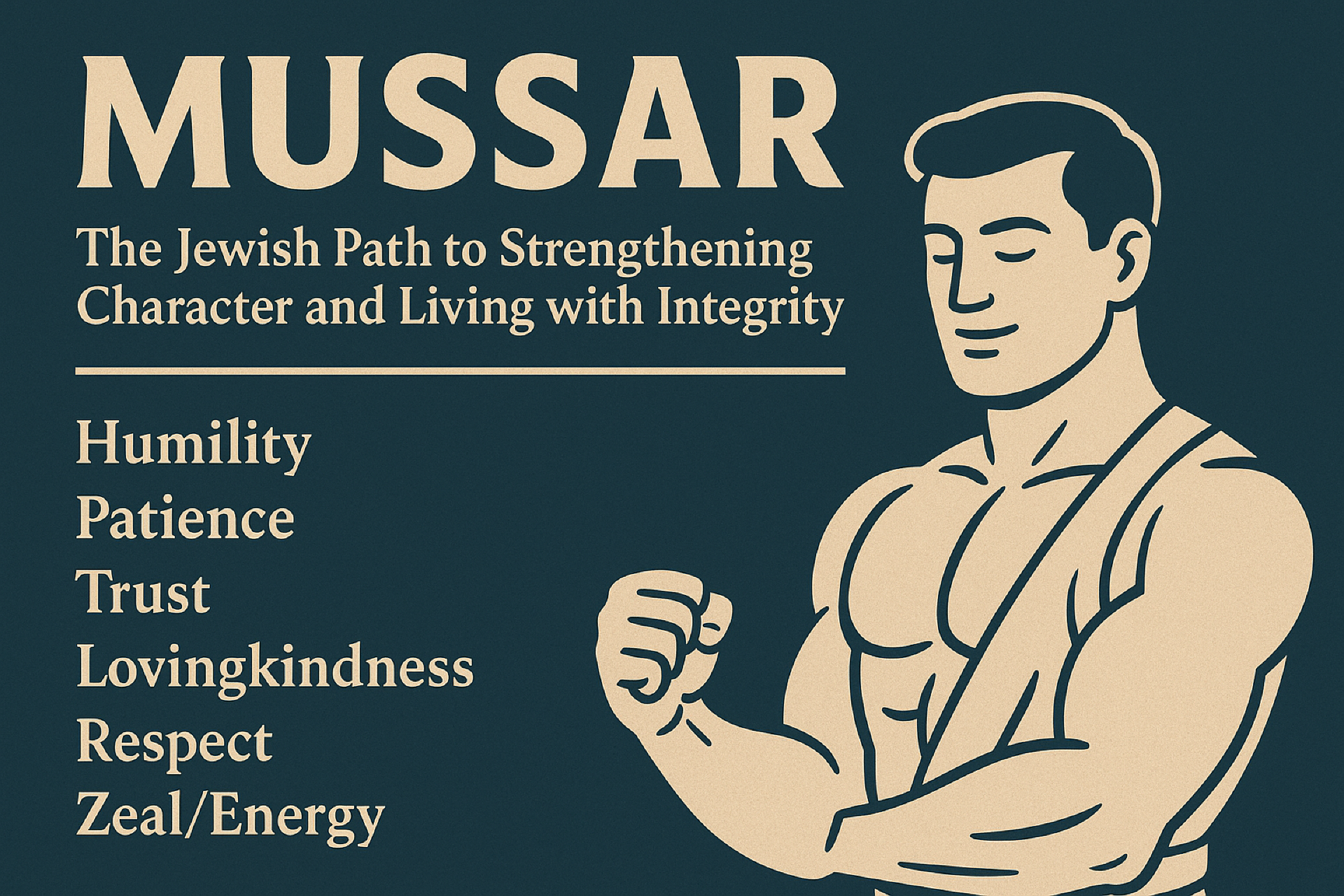Mussar is a practice for cultivating character that’s radically rooted and deeply Jewish: a structured path to becoming a person of integrity, humility, and compassion. Think of it as Judaism’s answer to Stoicism, but with an even greater focus on relationships, community, and spiritual growth.
For Jews looking to strengthen not just their bodies but their middot (soul-traits) Mussar is a centuries-old guide to building moral and spiritual muscle.
What is Mussar?
Mussar (מוסר), meaning “instruction” or “ethics,” refers to a Jewish ethical, educational, and spiritual movement that emphasizes character development through introspection, discipline, and everyday action. Its roots go back to biblical and rabbinic teachings, but it crystallized into a distinct movement in the 19th century thanks to Rabbi Israel Salanter, who sought to elevate ethical behavior among Jews in Lithuania.
Unlike abstract theology or ritual law, Mussar focuses on applied spirituality. It’s not about what you believe, but how you behave—especially when no one is watching. That’s what makes it so similar in spirit to Stoicism, which also emphasizes inner transformation, virtue, and control over one’s reactions to external circumstances.
But Mussar is uniquely Jewish in how it centers God, community, and covenant in the pursuit of becoming a better human being.
Why Mussar Matters—Especially Now
We live in a time of noise: social media outrage, political polarization, and endless distraction. Mussar gives you tools to quiet the internal chatter and cultivate qualities that matter: patience, humility, trust, generosity. These aren’t just lofty ideals. They’re practical, teachable, and livable traits.
Mussar also aligns well with the values of self-defense and community strength that we emphasize here at TheMuscularJew.com. Physical strength is vital—but so is inner discipline, moral clarity, and the ability to meet both threat and neighbor with the right measure of force or compassion.
Commonly Practiced Middot
Mussar centers around middot—soul-traits or ethical qualities. While different texts list different traits, the following are among the most commonly emphasized:
- Anavah (Humility): Not thinking less of yourself, but thinking of yourself less. Humility in Mussar is about knowing your strengths and weaknesses honestly.
- Savlanut (Patience): The ability to hold space and remain composed under pressure or provocation.
- Bitachon (Trust): Deep spiritual confidence in God and in the moral structure of the world.
- Chesed (Lovingkindness): Acts of generosity and compassion done without expectation of return.
- Kavod (Honor/Respect): Seeing the image of God in every person, and treating them accordingly.
- Zerizut (Zeal/Energy): Rising quickly to do the right thing—taking action without procrastination.
- Shtikah (Silence): Restraint in speech, listening deeply before speaking.
The goal isn’t to master all these traits at once, but to work on one at a time, cycling through them over weeks or months.
Daily Mussar: Three Practices for Beginners
Mussar isn’t just a philosophy—it’s a daily practice. Here are three time-tested ways to begin your journey:
1. Focus on One Middah a Week
Choose a middah (e.g., humility, patience, gratitude) and make it your focus for seven days. Each morning, write it on a sticky note or index card, along with a short phrase or teaching (e.g., “All that I have is a gift from God”—for humility). Check in throughout the day. At night, reflect on where you succeeded and where you struggled.
This weekly focus is based on Rabbi Salanter’s own Mussar program and was later popularized by teachers like Rabbi Ira Stone and Dr. Alan Morinis.
2. Use a Mussar Journal
Each night, jot down a quick reflection: “Where did I live out this middah today? Where did I fall short?” Over time, you’ll start noticing patterns in your behavior—and opportunities for growth.
This practice not only builds self-awareness but instills accountability, which is critical for long-term transformation.
3. Practice Hitbodedut or Quiet Contemplation
Borrowed from Hasidic traditions, hitbodedut—solitary, spoken prayer or contemplation—can be adapted to Mussar by sitting quietly each day and speaking (or journaling) to God or yourself about your inner struggles. “Why did I lose my temper at work? What fear or ego was triggered?” Ask honestly. Listen patiently.
Mussar doesn’t shy away from the hard stuff. It invites you to confront your own inner barriers—with compassion and clarity.
Final Thoughts
Mussar offers an integrated framework for living with strength, purpose, and integrity. Like Stoicism, it encourages us to meet life’s chaos with composure and courage. But unlike Stoicism, it is deeply relational—teaching us to refine ourselves for the sake of others, and in service of a higher purpose.
In a time when Jewish communities face both internal pressures and external threats, cultivating strong character is not optional—it’s essential. Mussar helps us show up not only as physically strong Jews, but as trustworthy friends, honorable adversaries, and responsible stewards of our traditions.
Train your body. Train your soul. That’s the Mussar way—and that’s the way of the Muscular Jew.
